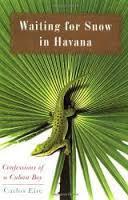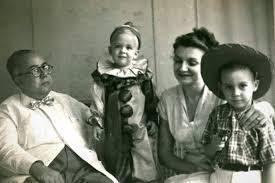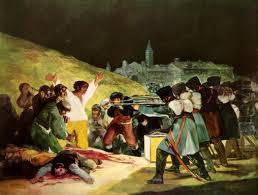 Carlos Eire was eight, with normal childhood concerns, a love for fireworks and pools, and a loathing for lizards, until Fidel Castro came along and ruined everything. Eire’s memoir, Waiting For Snow in Havana – Confessions of a Cuban Boy, gives a mordant child’s-eye-view of “the Revolution.”
Carlos Eire was eight, with normal childhood concerns, a love for fireworks and pools, and a loathing for lizards, until Fidel Castro came along and ruined everything. Eire’s memoir, Waiting For Snow in Havana – Confessions of a Cuban Boy, gives a mordant child’s-eye-view of “the Revolution.”
OK, his was an affluent family (his father a judge), with more to lose than most Cubans, for whom the ousted Batista regime sucked. But Eire’s book belies Castro’s “Revolution” being an advancement of social justice, exposing its dark reality.

I myself was suckered in by its romanticism in 1959’s heady days. Then again, I was only eleven, and soon enough repented. Many on the left never did.

I am sick of palaver about the wonderfulness of Cuba’s education and health care. Truth is, the regime schools and doctors its serfs sufficiently for them to function at work – for which it pays them a pittance. Thus the economy manages to creak along, just. “The Revolution” was quite good at destroying the wealth of the rich and successful – much simply confiscated – yet the average Cuban is as poor as ever, and in fact, inequality is if anything worse. But don’t ever dare complain.
Social justice? One weeps to think how much better off those poor people would be with a normal government that allowed their enterprise to flourish, rather than crushing it with an oppressive, dysfunctional, crackpot economic model crafted only to perpetuate total societal control by the masters.

It’s now been 56 years, but in Cuba, as Carlos Eire put it, everything is still “Revolution this” and “Revolution that.” Seems to me 56 years should have been time enough to complete a revolution (especially with all dissension obliterated) and get on with normal life (not to mention actually making it better). If Cuba did need a revolution in 1959, it needs one far more now. The book’s title is never explained, but that’s probably the “snow in Havana” Carlos Eire has waited for, in vain. He never returned.
* Batista was often called a brutal dictator. True; yet he was toppled with relative ease. Why haven’t the Castros been toppled? Such regimes (and Venezuela’s, Iran’s, etc.) are far more repressive than old style “right wing” dictators ever were, thus far harder to get rid of.
